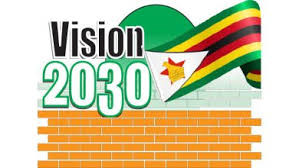
THE economic chaos and structural deformities are a boon to the creation of an alternative industry and commerce. New business has germinated, creating millions of jobs. The chaos has created immense opportunities that are being exploited to the full. Better than formal jobs in many instances.
In this suffering some want the status quo to remain and they are in their millions.
Attempting to formalise the economy and correct deformities will cause massive bleeding of these underground and alternative jobs. It requires strategic innovation to create more and better jobs in a formal economy. This is the challenge the government faces and seems blind on how to navigate it.
The government is driven to formalise.
Unfortunately, what in the so-called formal economy, job creation is a mirage and is not a desired strategic outcome for companies. Companies actually desire to destroy jobs rather than creating them.
Automation, modernisation, artificial intelligence, robotics and other technologies are all driven at industry with hope of substituting the unionised labour force. It creates few other jobs, but in Zimbabwe we have a more serious and significant challenge.
Our challenge is that our emphasis on science, technology, engineering and mathematics higher education is very pale after its local architect, former minister Jonathan Moyo was discarded into the political dustbin, literally throwing away the bath water together with the baby.
We have hordes of universities with more than 60% studying social sciences, arts and commercials. This will never create a new economy, the one that can deliver new jobs.
- Mr President, you missed the opportunity to be the veritable voice of conscience
- ED to commission new-look border post
- Zanu PF ready for congress
- Zanu PF ready for congress
Keep Reading
President Emmerson Mnangagwa has to think smart on how to create a new economy to absorb the informal industries created by government’s absolute and disastrous failures. Millions are now employed in the parallel economy.
Examples I give below are “industries” that will go extinct in a formal and working economy.
- After urban areas ran out of potable water, an entire industry was created in borehole drilling, water purification, water deliveries, engineering and support services. With working councils and availability of water these industries will die.
- The currency and exchange control regulations have created a very big industry of money changers, tuckshops, car sales, loan sharks and car boot sales that will go extinct in a liberalised exchange control and functioning economy.
- The energy shortage has created a massive industry in solar and gas supply chain for both industry and households. With a properly organised energy supply industry, this new industry will naturally die.
- The unregulated mining industry has created a massive million plus jobs, according to Zimbabwe Mining Federation. With formalisation these may not die, but may face diminished profits from taxation and formal mineral trading.
- There has been failure of railway infrastructure which has created countless trucking and storage companies. If rail works there will be no need to transport inputs and fuel using trucks. This mode of transport is expensive and increases costs of production.
- Public transport system has broken down. This has created thousands of alternative transport and ride sharing. With a working public transport system this industry will go under.
- There are more private schools per square kilometre. The idea is public schools have failed. If public schools start working there will be no need for sprouting of private schools. They will die in an instant. It happened in Rwanda.
The examples above are critical because the government has multiple challenges to innovate around job creation, diversifying the economy, reskilling, attracting new talent, diaspora migration, skills partnerships and re-education.
The task this present government face is one that requires strategic innovation beyond extractive and primary industries of mining and agriculture. At present the government does not show passion at investing in that arena and have skills to drive a new country trajectory.
It has to start with the mind. Yet here we are as a country still innovating around the familiar of agriculture and mining. The dilemma is keeping the current trajectory of an informal economy which is underground, whose income is undeclared and businesses are unregistered.
We will continue to witness house construction, cars sales, private schools, bars, foreign trips and luxury purchases with no real income being realised by, for instance, the Zimbabwe Revenue Authority, National Social Security Authority, Zimbabwe Development Fund and municipalities.
Public goods will be demanded from persons without a taxpayer number. The cities and towns will be burdened with residents who want the best but paying nothing for it.
It does not seem we have the mind to innovate outside the familiar to destroy the prevailing economic chaos. We do not seem to have the skills, structures, systems and strategy to do so at Cabinet level.
The alternative is equally problematic in that a formal economy which does not create jobs will pose existential threats to the ruling party. It can cause chaos. Idle minds will create a headache to the ruling class.
Our government, Cabinet and ministries are still the same as in 1965 and for them to leapfrog in innovation to create formal jobs requires a new mindset. Most ministries are no longer fit for purpose.
Then the question is who exactly in government is responsible for creating the new economy? Who co-ordinates several value creating ministries to ensure they get out of incremental innovation mode to disruptive and radical innovation?
If, as a country, we have no clear answer and we are not creating jobs as a government, then we have failed. If we don’t have an environment to enable private enterprise to create jobs, then we have absolutely failed. If we destroy the old jobs without creating new jobs, then we are creating fertile ground for discontent to manifest.
The big question is what is the government going to do with millions who are now self-employed due to government ineptitude? And, how will these people react if and when their “jobs” are taken away?
The President must innovate outside the familiar to create a new formal economy with new jobs.











